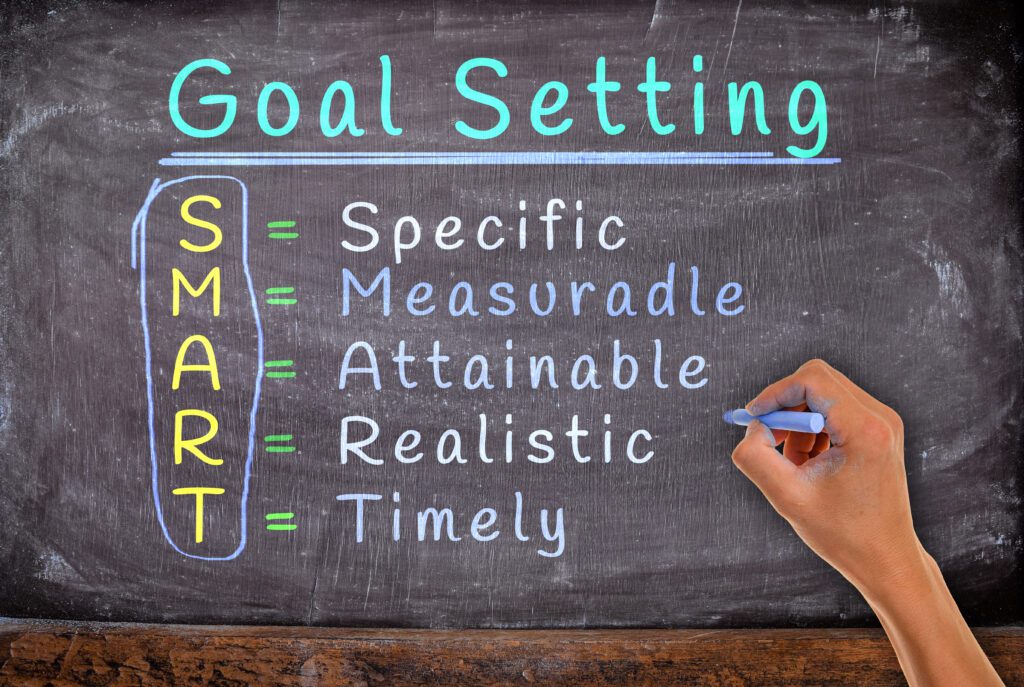Setting Goals:Your Map to Fulfillment Through Purpose

Setting Goals:Your Map to Fulfillment Through Purpose
Dr. Paul Uliasz, President & Clinical Director
“If your dreams do not scare you, they are not big enough.”
Ellen Johnson Sirleaf
Goal setting as a key to happiness, professional success, and health
As we look at the year ahead, many of us are thinking about goals. There are hundreds of books and articles devoted to this topic and many are worthy of your attention. In reading on this subject, you will probably see the Harvard Business School Study and the Yale Study cited as examples of the importance and impact of goal setting. Both studies reportedly concluded that compared to their counterparts who had no formal goals, MBA students who had written goals at the time of graduation made substantially more money ten years post-graduation.
Inspiring though those results are, it has been proven that such research was never conducted at Yale or Harvard. It is most likely these ‘studies’ were invented by a motivational speaker to prove a point and then, based on hearsay, cited by numerous other speakers and writers.
Although those often-cited studies were imaginary, subsequent research has established that written goals have a strong, positive effect on achievement. It has been well-established that having purpose (in other words, goals) is associated with greater self-fulfillment and happiness. There is even evidence that having purpose can help you live longer!
People who do not have clear goals drift through their lives with no road map to guide their reactions to the environment around them. They are often unhappy with where they end up and unsure how to change their circumstances.
People with well-defined goals have purpose; they know where they want to be and how they are going to get there. They are proactive in pursuing objectives. They are hopeful with a sense of well-being knowing they are acting with intention.
I have been using written, well-defined personal and professional goals for more than ten years. When I met my wife, we began writing goals together and keeping each other accountable for reaching our goals. Supporting each other in setting and achieving our goals has benefited both of us greatly. Every coach and mentor with whom I’ve worked has stressed the importance of setting goals. Because of the great results I’ve had with setting goals, I encourage my team to use this strategy as well.
How to be SMART about setting your goals

How do you set goals that will help you move towards your overall purpose in life? I am a proponent of the SMART Goals approach. SMART goals are Specific, Meaningful, Achievable, Relevant, Time-Bound goals.
The idea behind SMART goals is that
- The more SPECIFIC the goal, the greater the likelihood that you will be able to accomplish it.
- Goals must be MEANINGFUL enough to motivate you to do what is required to achieve them.
- This one may seem obvious, but goals must be ACHIEVABLE. Ideally, your goal should be something doable, but not so easy that it won’t take any real effort.
- You set yourself up with the best chance of success when your goals are RELEVANT to your core values. This requires some soul searching but when your goals are in alignment with what you truly want out of life, you will be much less likely to be frustrated in your efforts and give up.
- Finally, set a specific deadline for reaching the goal. Being TIMELY will help you stay on track with prioritizing the actions that will help you accomplish your objective.
You’ve set your goals, now what?
After you’ve set your goals, the next step is to map out a plan of action for achieving them. When you commit to that plan of action, you have taken your first step towards achieving your purpose. It is helpful to place goals in an area where you will see them every day. This will serve as a daily reminder of your goal and the actions you need to take to get there. It is best to have an accountability partner who will help you stay on track in reaching your goals.
Any business that plans to grow 25% or more in a year must have clearly defined goals. Everyone in the business, from C-level to entry level, should know what these goals are. Ideally, they should also know the specific role they can play in reaching them. Goal setting has been powerful in my own life and for our growing group.
I encourage all team members to set their personal goals during the early part of January. Our business goals are collective but individual goals can be whatever the person wants. If they are comfortable sharing, I like to know what my team’s individual goals are. This helps me better understand how their goals fit with the organization’s collective goals. That understanding aids our management team in guiding people, whenever possible, in a direction that will help them maintain their sense of purpose.
